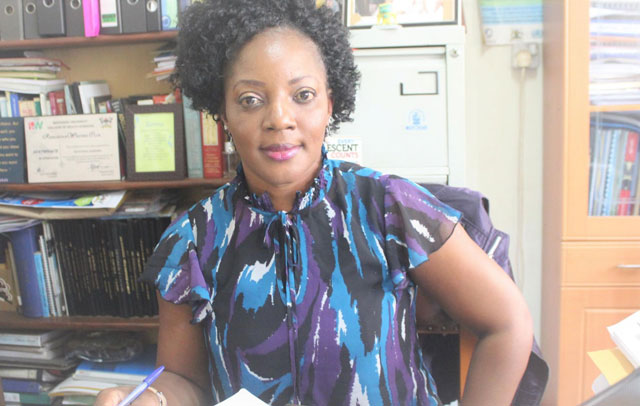
Kampala, Uganda | THE INDEPENDENT | Vaccination has helped Uganda to prevent some of the killer childhood diseases but it’s now being resisted by a section of society, says Dr. Sabrina Kitaka.
Dr. Kitaka, a renown Ugandan Pediatric Consultant and Lecturer at Mulago’s School of Medicine says one of the reasons is that many parents are complacent as diseases that were killing children are no longer in Uganda due to the success of vaccines.
She told URN that the country cannot afford to have children not to grow to their adulthood just because parents have become complacent.
“For use we are now giving eleven vaccines but the US give 36 different vaccinations. But I know that some private patients are accessing all these vaccines. Anti-rabies, Anti-influenza. They are accessing all these things,” she added.
Kitaka explains that the part of the reason that Uganda is vaccinating against 11 diseases as opposed to USA’s 36 is due to the cost of the vaccines. Vaccines being used in the current campaign are said to have cost over 53 billion shillings or over 14 million dollars as part of the efforts to improve immunization coverage.
Support from the Global Alliance for Vaccines and UNICEF has led to expansion of the number of immunizable diseases from six to 11. Some of the diseases on the list include; polio, TB, Tetenus, Heptitis B and Whooping cough among others.
Over 20 million doses of Measles-Rubella (MR) vaccine have arrived in Uganda. The vaccines, procured by UNICEF with financial support from Global Alliance for Vaccine Initiative.
The vaccination exercise which started last week was aimed at having more than 18 million children aged 9 months to 14 years protect against Measles and Rubella.
While some parents heeded to the government’s call and had their children vaccinated, others deliberately kept their children away from school and therefore missed the vaccination.
Dr. Kitaka, also the head of the Measles Ward at Mulago National referral hospital says apart from complacency some of the parents have either through propaganda, misinformation of fake news from the internet been misled about the effectiveness and motive of the measles and rubella vaccination.
Dr. Kitaka says she was not surprised to read a notice of intention to sue or demand notice from a law firm threatening to sue Green Hill Academy and the Minister of Health through the Attorney General for immunizing children without parental consent.
Mulindwa Associates And Company Advocates in a letter dated 18th August apart from other asked the School and the Ministry of Health for a public apology. It also demanded that parents whose children had not been immunized to be educated about the vaccine.
Fighting disinformation
She agrees that Uganda and other countries need to fight complacency through more awareness including misinformation by Anti-vaccine campaigners including faith-based groups.
“There are religious groupings, there are protagonists who simply say don’t vaccinate my child. In the US the group that were found to say don’t vaccinate my child were religious group. And those are the very ones who spread measles to the whole country,” she added.
In Uganda, the Health Ministry says it has realized that there are about two million children who are not vaccinated since 2015 because parents have been misinformed or taken personal choices that could put the entire public health at risk.
A single reported case of measles can have a huge negative impact says Sabrina Kitaka. She says measles is among the most proven virulent and infectious microbes known to human kind.
“Measles is a highly virulent organism. You just need to have one child with measles in a room that can contain 100 children. And all the susceptible children will become infected. So imagine a nursery school that could have thirty children and one child comes in with measles. What will happen to them? They will all get infected”
Why Measles and Rubella Vaccination?
Uganda according to WHO has experienced measles outbreaks across numerous districts in the past three years. At the same time, polio remains a daunting threat, given evidence of vaccine-derived strains circulating in neighboring countries. Districts like Rubanda in South Western Uganda and Kyenjojo reported deaths related to the two diseases.
The outbreak is not just in Uganda. Latest statistics from US Center For Disease Control (CDC) indicate that over one thousand two hundred and fifty cases of measles were confirmed in 31 states between January and this October.
The outbreak in the US according to CDC is the greatest number of cases reported in the U.S. since 1992. It said the majority of cases are among people who were not vaccinated against measles.
An ultra-Orthodox Jewish community in Brooklyn, USA is blamed for fueling hesitancy against Measles and Rubella vaccines. It is alleged to have distributed fliers wrongly claiming links between vaccines and autism.
According to WHO, Measles is a highly contagious viral disease that is transmitted via droplets from the nose, mouth or throat of infected persons.
Initial symptoms, usually appear 10–12 days after infection. Common complications include pneumonia and diarrhoea. Death may occur in up to 5-10% of infected young children in developing countries.
While Rubella is also a contagious viral disease that is transmitted in airborne droplets when infected people sneeze or cough.
Though milder than measles, when rubella infects a pregnant woman during the first half of her pregnancy, there is danger of fetal death or severe birth defects that especially affect the eyes, ears, heart and brain.
*******
URN
 The Independent Uganda: You get the Truth we Pay the Price
The Independent Uganda: You get the Truth we Pay the Price



